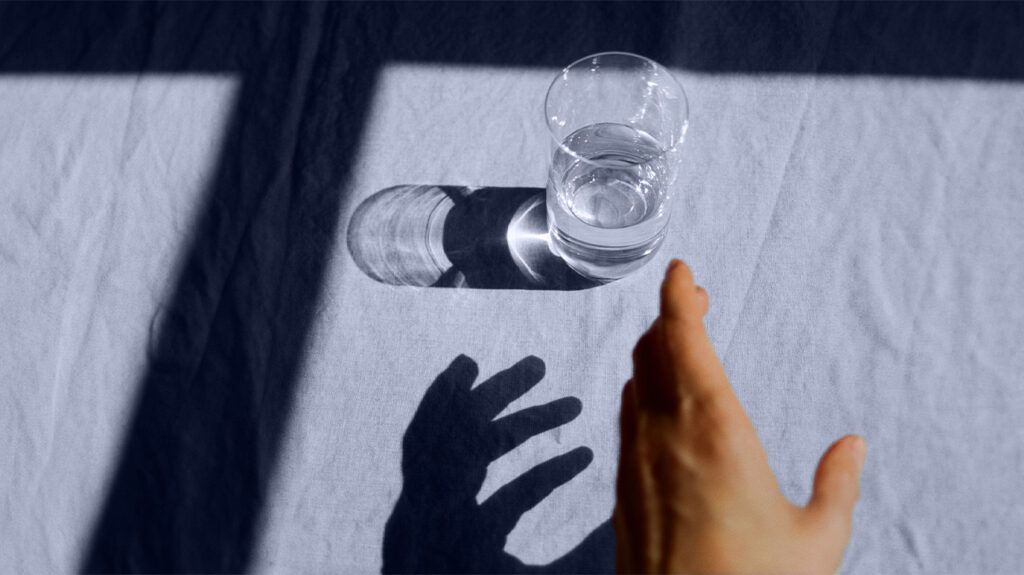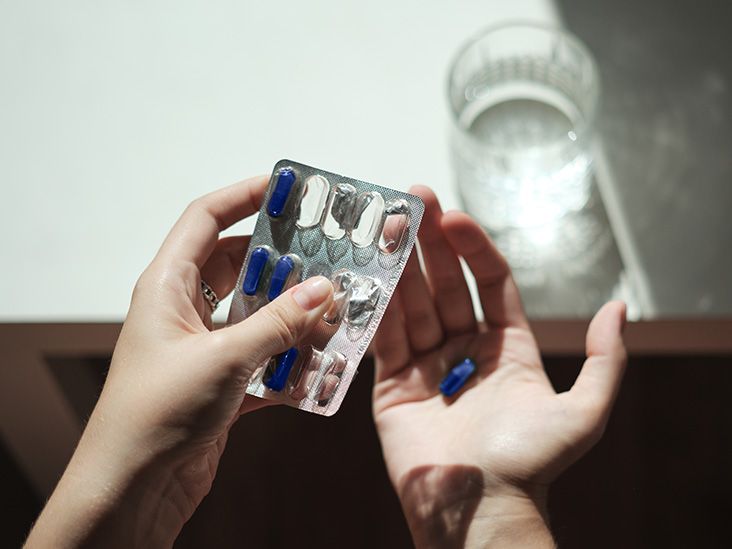Chronic dehydration is when a person does not get enough fluids over a long period of time. It can be mild or severe. Certain groups, such as older adults, may be more at risk.
Dehydration occurs when a person loses water and does not take enough in to replace it. Potential causes include forgetting to drink, acute vomiting and diarrhea, heat exposure, prolonged vigorous exercise, and some conditions and medications.
While some sources claim
This article looks at chronic dehydration, including its signs and symptoms, effects, causes, treatments, and prevention.

As a guide, many sources recommend that adults get 6 to 8 glasses of water per day. However, the British Heart Foundation (BHF) also emphasizes that it is important to listen to the body.
If a person’s urine is clear or light yellow, a person is getting enough water. If it is medium to dark yellow, they need to drink more.
How much water a person needs each day
- sex
- metabolism
- activity level
- diet
- environmental conditions
These factors influence how much water people take in and how much they excrete via sweat or the kidneys.
For example, foods such as fruits and vegetables contain high amounts of water. Sweating due to exercise or heat increases the loss of water. People who are pregnant or breastfeeding also need more water.
Thirst can be one of the first signs of dehydration. According to the BHF, other signs of mild dehydration can include:
- urinating less often
- having darker colored urine than usual
- having a dry or sticky mouth
- dry lips
- feeling tired or less alert
- feeling dizzy or weak
- headache
A person with mild chronic dehydration may have these symptoms frequently until they drink more.
Signs of dehydration in babies also include:
- a soft, sunken spot on top of the head
- fewer wet diapers than usual
- crying with few or no tears
- fussiness
Any young children with these signs needs immediate medical attention.
When dehydration in adults becomes severe, it can cause:
- confusion
- drowsiness
- a complete lack of urination or sweating
- a weak or fast pulse
- severe dizziness or fainting
Adults with severe symptoms or who cannot keep water down need immediate medical attention.
Low daily water intake may cause persistent tiredness and difficulty focusing. These symptoms can negatively affect a person’s daily life and may interfere with work, exercise, or socializing.
Dehydration also has links to:
- Constipation: Water helps to soften the stool, which makes bowel movements easier. When a person is dehydrated, the stool becomes harder and may be more difficult to pass.
- Kidney stones: According to a
2020 reviewTrusted Source , dehydration is a key risk factor for kidney stones. The risk decreases with adequate fluid intake. - Lower cognitive function: A 2021 systematic review of past research found some limited evidence that dehydration had associations with worse neurocognitive function in older adults.
- Mortality in older adults: The 2021 systematic review also notes that dehydration links to higher mortality rates in older adults.
Chronic dehydration occurs when a person consistently loses more water than they are taking in over a long period of time. Some factors that may contribute to this include:
- forgetting to drink enough fluids
- not listening to or noticing thirst cues
- exercising frequently
- not having access to clean and safe drinking water
- living in a hot climate
- doing other activities involving heat, such as hot yoga or using saunas
- following a diet low in foods with a high water content, such as fruits and vegetables
- prolonged vomiting or diarrhea
- having a fever or night sweats
- taking diuretic medications
- certain underlying health conditions
A 2020 study on chronic dehydration in older adults living in nursing homes also notes that dehydration is more common in those with:
- cognitive impairments
- dementia
- more than four chronic conditions
- a higher body mass
Cognitive impairments such as dementia can make a person forget to drink, or lead to dysphagia, which is difficulty swallowing.
The reasons why a high body weight has links to dehydration are still unclear, but it may be due to the kidneys working harder or fluid being distributed differently in the body.
In an otherwise healthy person, drinking water throughout the day and when thirsty usually keeps hydration levels up.
People can ensure that they are drinking enough by:
- infusing water with flavor to make it tasty
- drinking caffeine-free tea
- eating hydrating foods, such as melon, cucumbers, berries, or lettuce
- having a nonalcoholic drink when socializing
- monitoring the color of the urine
- using apps to track water intake
- setting reminders
The BHF notes that tea, coffee, and milk also count toward fluid intake. Fruit juice and smoothies do, too, but these can be higher in sugar.
Alcohol can also contribute to dehydration. If a person often drinks alcohol, cutting down may help.
If dehydration is more severe, a doctor may suggest:
Electrolyte replacement
Electrolytes — including sodium, potassium, magnesium, and calcium — are essential minerals for normal bodily functioning and are important in hydration. After exercise, a person can replenish their electrolyte levels with a shop-bought drink or a homemade electrolyte drink recipe.
Doctors also recommend electrolyte replacement when a person has lost fluid due to diarrhea or vomiting.
IV fluids
If a person has serious dehydration, they may need to visit the hospital to receive intravenous (IV) fluids.
Older adults are
- impaired sense of thirst
- immobility
- diabetes
- kidney disease
- falls
Some tips that may be especially useful for people in this group include:
- keeping a large tumbler or bottle of water nearby
- using large, easy-to-hold water tumblers with a straw to make it easier to drink
- having drinks with meals
- drinking a full glass of water when taking medications
- wearing a personal alarm that a person can use if they fall or otherwise cannot get food or water
People with medical conditions or who take medications that interfere with hydration should ask a doctor how much they need to drink each day and which types of liquid would be best for them. For example, those with diabetes may need to avoid fruit juice.
Chronic dehydration can occur when a person loses more water than they take in. This can be due to various lifestyle factors, illnesses, or underlying health conditions.
If a person has any signs or symptoms of dehydration, they should see their doctor, who can advise on how to rehydrate gradually. Drinking too much water, especially in a short period of time, can be dangerous.
Rehydrating during and after exercise can prevent dehydration. Consuming electrolyte drinks can help a person rehydrate when they are exercising or have stomach flu.
Apps that monitor water intake can be useful for people who might need reminders to drink. Adopting a healthful diet that includes plenty of fruits and vegetables can also contribute to fluid intake.


